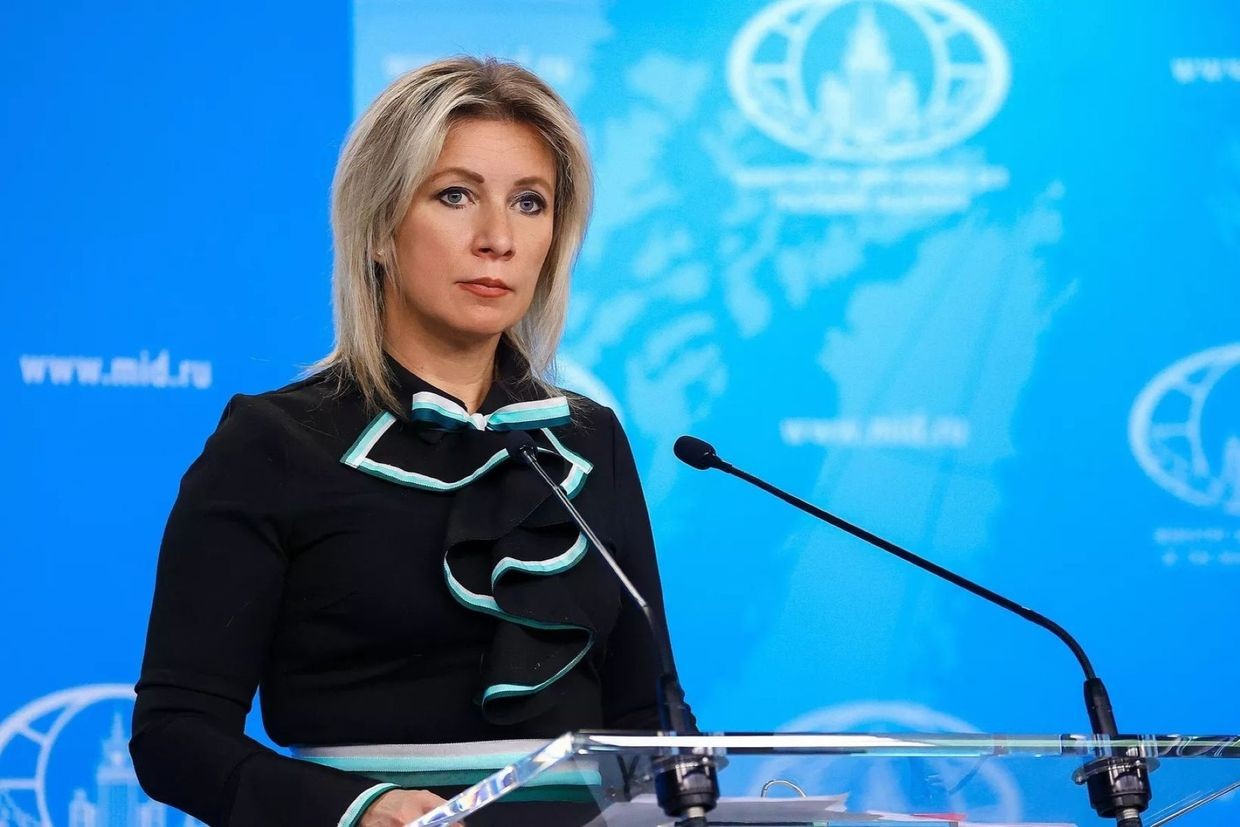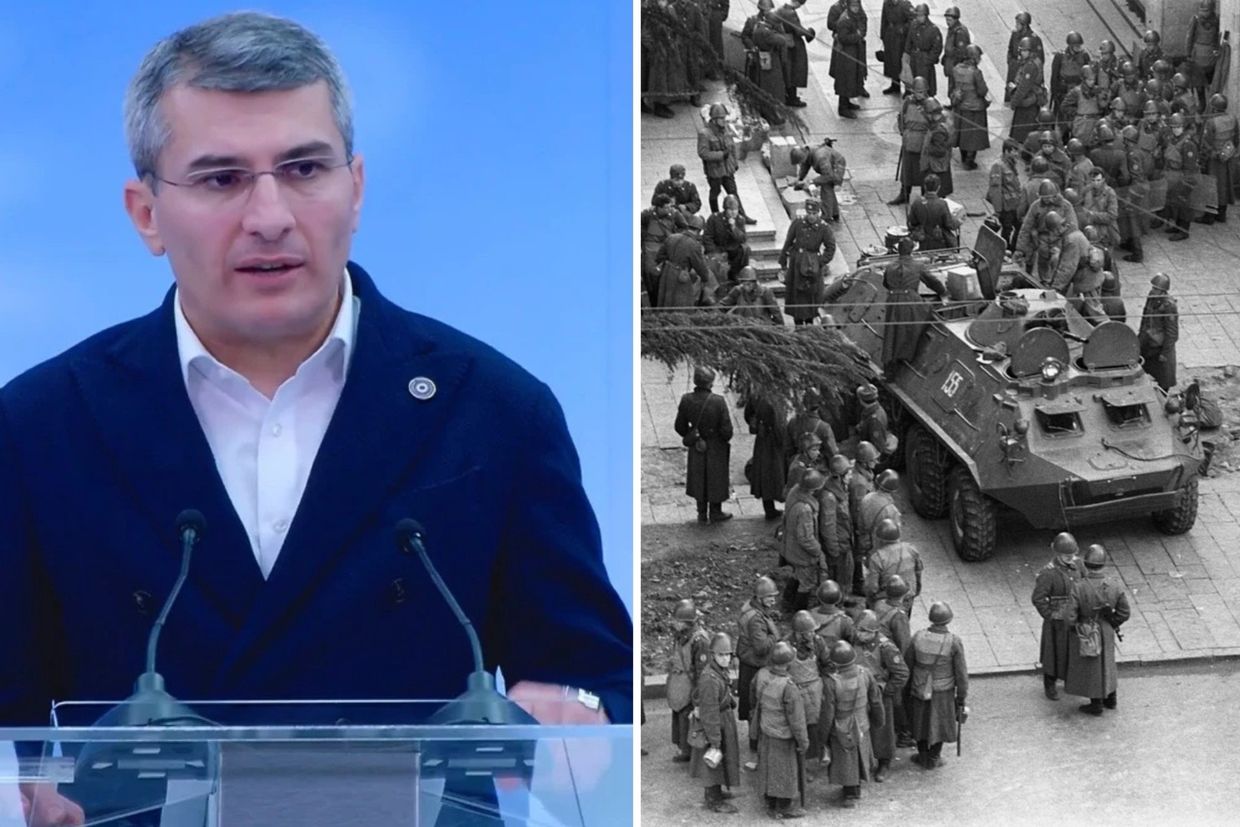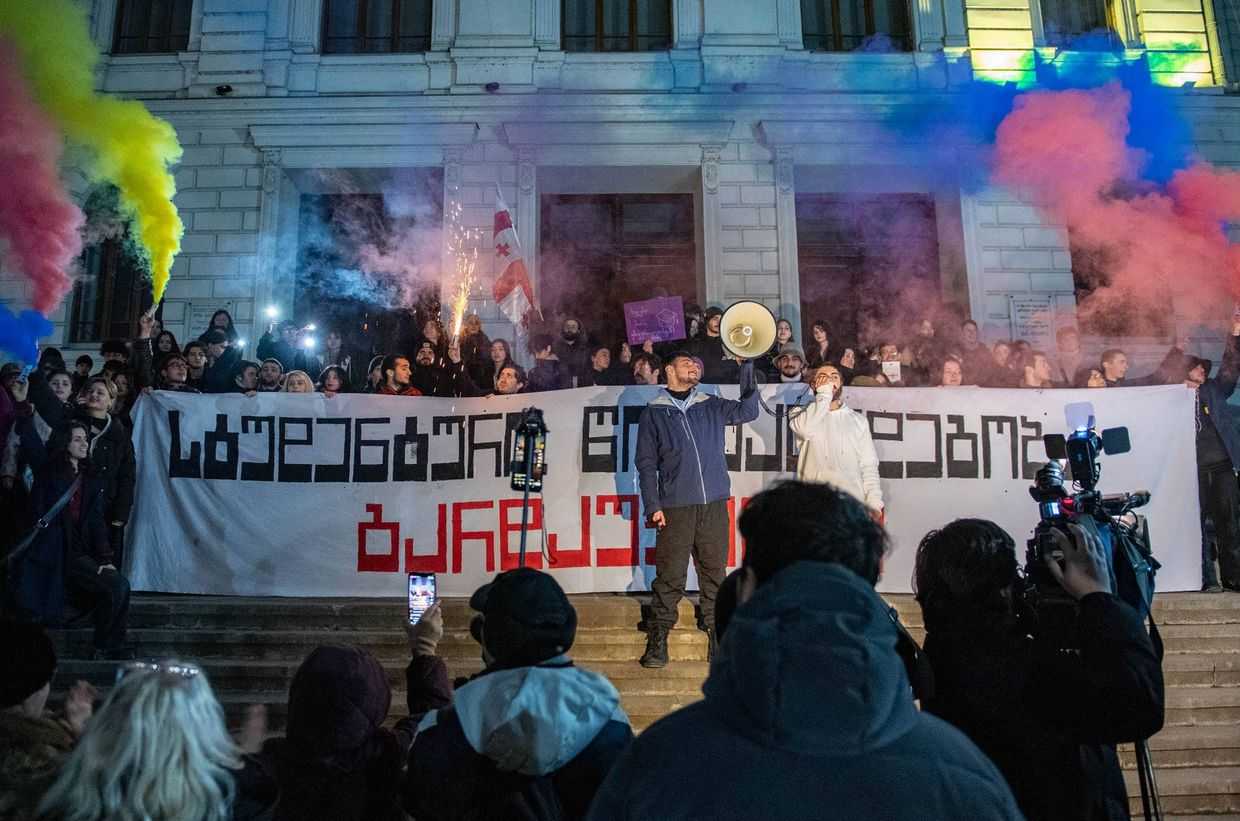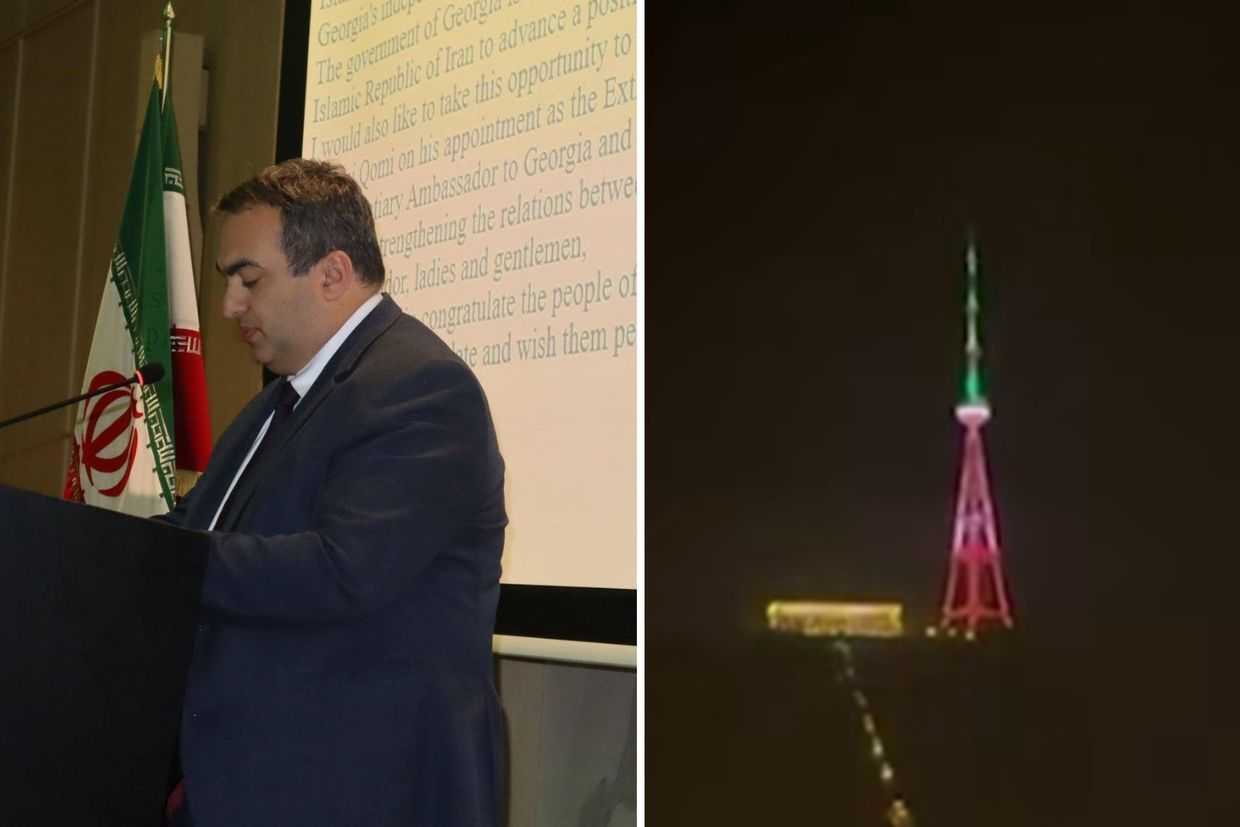
During a briefing on Thursday, Russian Foreign Ministry spokesperson Maria Zakharova, while commenting about the possibility for Georgia to join the EU by 2030, called into question the future of the bloc itself and its importance to national economies.
‘You know, the main thing is that those who want to join the EU, by 2030 or some other year, have somewhere to join’, she said.
The journalist’s question was presumably related to a statement made on Monday on behalf of the ruling Georgian Dream’s political council, which stated that they ‘promise the public that [their] political team will cope with all challenges with dignity and that Georgia will meet the announced EU enlargement by 2030 better prepared than all candidate countries’.
In her response, Zakharova recalled the UK, saying the country had left the EU in 2020 for ‘quite understandable reasons’.
‘Just remember — Britain would not have [left something] good. Where there is something to profit from, where there is real potential, the British will be the first [to join]. Now they are the first to leave the EU. It is clear why. Because the crisis phenomena within the EU are so obvious’.
At the same time, Zakharova emphasised that in the EU, ‘those who think about their national economies have nothing to do’.
‘That’s all. This is the sovereign business of each and every one’.
In late November, Georgian Prime Minister Irakli Kobakhidze announced that the government was halting Georgia’s EU bid until 2028, sparking daily mass protests during which more than 400 demonstrators were reported to have been detained thus far.

According to Zakharova, Russia has ‘repeatedly spoken about this with Georgia, despite the existing political differences and the lack of diplomatic relations’, presumably, meaning the possibility of Georgia’s rapprochement with the EU and eventual membership.
‘But we are building bilateral ties in a mutually respectful and mutually beneficial manner. A dialogue is underway in this area’, she said. ‘We are striving to intensify business and humanitarian cooperation, systematically moving towards normalising relations, which meets the interests of the Russian and Georgian peoples’.
Georgia severed diplomatic relations with Russia following the 2008 August War and Moscow’s recognition of the independence of South Ossetia and Abkhazia.

Zakharova claimed that Russia demonstrated its aspirations, good will, and desires in practice.
‘But the question is that those who consider the EU should look at specific figures, and not just at slogans. Who knows what they write on fences. We need to see if it is actually there’, she said.
Georgia was granted EU candidate status in December 2023.
However, in recent years, including before it was granted candidate status, relations between Georgia and the EU have been strained, and although Georgia initially applied alongside Moldova and Ukraine in 2022, it failed to achieve candidate status at the same time, in large part because of the failure to enact reforms. In lieu of receiving candidate status, Georgia was given additional reforms to undergo. The lengthy, more than a year delay further worsened ties.

After Kobakhidze announced that the ruling party would not put the issue of EU accession negotiations on the agenda until 2028, the EU strongly criticised the government for democratic backsliding, the adoption of controversial laws, and violence by law enforcement officers against demonstrators.
In response to the developments in the country, the EU and its individual member states have suspended assistance, and suspended visa-free travel for holders of diplomatic and service passports.
Individual EU countries have also banned Georgian Dream officials, as well as other individuals associated with its satellite parties from entering their countries.








![Baia Margishvili standing in central Tbilisi with a sign reading: ‘The Prosecutor’s Office [is] a punitive squad. How many more innocent people will you put in prison?’ Photo: Mariam Nikuradze/OC Media.](/_next/image/?url=https%3A%2F%2Fassets.bucket.fourthestate.app%2Foc-media-prod%2Fcontent%2Fimages%2F2026%2F02%2Fcalls-for-sanctions-and-raids-19-10-25-48.jpg&w=3840&q=50)


